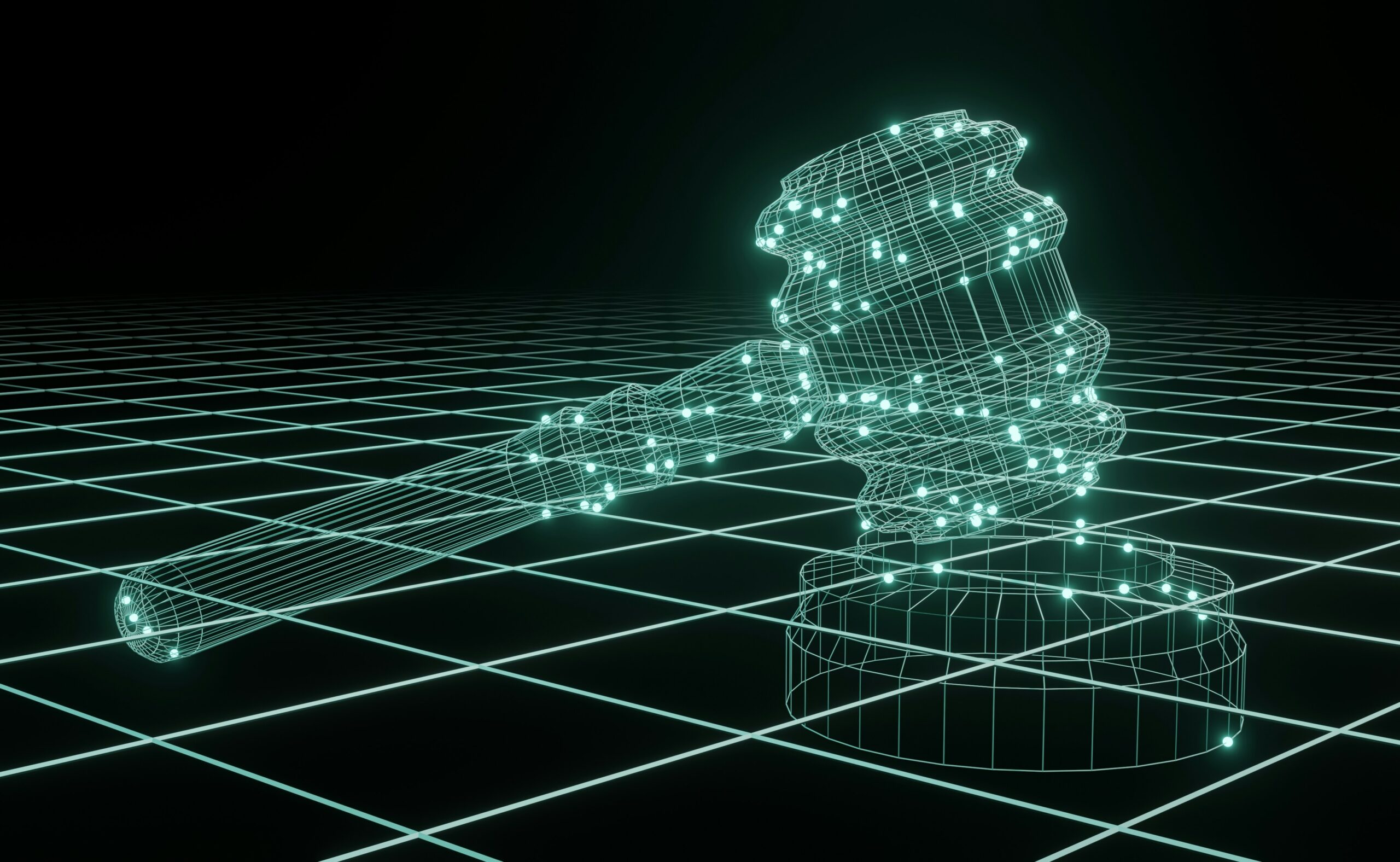Date of publication: 27 August 2025
Kateryna Solodovnyk, Lawyer
Source: Ukrainian Law Firms
Artificial intelligence (AI) and significant technological breakthroughs are revolutionising industries worldwide, and international arbitration is no exception. From document review to virtual hearings and automated drafting, technology is driving a profound transformation of the arbitration landscape, offering promising tools to enhance efficiency, reduce costs, and improve case management. In light of these developments, it becomes increasingly important to assess how international arbitration institutions keep pace with technological progress and whether their procedural rules effectively address the emerging digitalisation. Evolving trends, best practices, and potential gaps in the regulation of AI within international arbitration can often be contextualised by examining a country’s general pace towards adopting a legal framework for artificial intelligence, as national policy and regulatory developments frequently shape how swiftly AI is integrated into arbitration practice.
Arbitral Institutions and AI: Readiness through Adaptation
Based on my professional experience, arbitral institutions are generally open and adaptable to the use of technology and artificial intelligence, even when their rules do not explicitly refer to such tools. While this absence of express regulation may be seen as a gap that warrants further development, it usually offers arbitral tribunals broad discretion in shaping procedural aspects of each case. For instance, in one of the cases administered under the Rules of Arbitration of the Vienna International Arbitral Centre (VIAC), where I acted as a co-counsel, the Arbitral Tribunal expressly acknowledged the potential use of AI-based tools when translating exhibits into English. Although not specifically mentioned in the VIAC Rules of Arbitration [1], the Tribunal clarified that technologies such as AI or machine translation could well serve as auxiliary instruments to improve the efficiency of those proceedings. Such approach illustrates a growing practical acceptance of AI in international arbitration, even in the absence of formal regulation.
Ukrainian Developments: National AI Policies and Ethics Standards
By leveraging international experience, particularly in the field of arbitration, Ukraine aligns itself with global trends and policy developments related to artificial intelligence. In May 2025, Ukraine was among the first States that signed the Council of Europe Framework Convention on Artificial Intelligence and Human Rights, Democracy and the Rule of Law, which sets forth fundamental principles that must guide the development of legislation and the application of AI technologies in the public sector [2]. This demonstrates Ukraine’s overall commitment to fostering an AI-friendly environment grounded in transparency, accountability, and human rights in many spheres.
A year earlier, in 2024, Ukraine took a significant step towards a responsible introduction of AI in the judiciary system by adopting a new Code of Judicial Ethics, a soft-law instrument guiding judges on ethical conduct, which permits the use of artificial intelligence technologies by judges, “provided it [AI] does not affect the judge’s independence and impartiality, does not relate to the evaluation of evidence or the decision-making process, and does not violate legal requirements” [3]. This provision reflects a balanced approach, allowing the use of AI technologies by judges while safeguarding the core principles of judicial independence, impartiality, and adherence to the law. It can serve as a good roadmap for the development of an AI-friendly legal framework, regulating international arbitration in Ukraine. Similar developments, initially launched in the judicial field of Ukraine, are highly likely to further influence internal regulations of arbitral institutions in Ukraine, particularly the International Commercial Arbitration Court at the Ukrainian Chamber of Commerce and Industry (ICAC).
ICAC and AI: Digitalisation Within the Ukrainian Arbitration Framework
While the ICAC Rules do not explicitly provide for the use of AI instruments during the arbitration procedure, they are generally progressive in their overall approach to the use of technology. The ICAC has successfully implemented the key universal tendencies of digitalising the arbitration process by allowing virtual hearings, facilitating electronic submissions, and granting wide procedural discretion to both the arbitral tribunal and the parties towards the use of auxiliary digital tools during the proceedings.
Notably, both Article 42(1) of the ICAC Rules [4] and Article 19(1) of the Law of Ukraine “On International Commercial Arbitration” [5] set forth that the parties “shall at their own discretion agree on the procedure of the arbitral proceedings to be followed by the Arbitral Tribunal.” Such a provision grants the parties a significant autonomy in shaping how their dispute shall be resolved and, among others, allows them to agree on the use of modern instruments such as electronic document management systems, virtual hearing platforms, artificial intelligence tools for document review or translation, and other digital technologies. As long as such party-driven choice does not conflict with the fundamental principles of the arbitration process, it would not appear to contradict the existing Ukrainian legal framework, including the provisions of the Law of Ukraine “On International Commercial Arbitration”, which remains silent on the use of artificial intelligence or other technologies.
In my opinion, the absence of clear legal provisions regulating the application of digital technologies in the course of dispute resolution, while potentially offering practical flexibility, presents a double-edged sword. On the one hand, the absence of specific prohibitions may allow arbitral institutions and parties greater discretion to experiment with and adopt AI technologies in a manner tailored to their procedural needs. On the other hand, this broadness also creates uncertainty and a lack of uniform standards. In the absence of clear regulatory guidance, institutions may be hesitant to implement AI tools. Therefore, it would be beneficial if the Law of Ukraine “On International Commercial Arbitration”, or another legislative act regulating international commercial arbitration, could provide a foundational regulatory framework, at least in the form of general principles or minimum standards, that arbitral institutions can follow when incorporating AI. Encouragingly, such a framework appears to be on the horizon, as Ukraine continues aligning its legal and institutional infrastructure with global digitalisation and AI governance trends.
Prospects for AI Regulation in the Arbitration Field in Ukraine
Given Ukraine’s broader digital transformation agenda, including the strategic initiatives led by the Ministry of Digital Transformation of Ukraine and outlined in the White Paper on Artificial Intelligence Regulation in Ukraine: Vision of the Ministry of Digital Transformation of Ukraine, [6] Ukrainian Government plans to develop and adopt a dedicated regulation on artificial intelligence, which quite likely may address the use of AI in legal domains, including those governing international commercial arbitration in Ukraine. If implemented thoughtfully, this regulation is expected to set important standards for the ethical and effective deployment of AI tools in legal, particularly arbitration, proceedings, ensuring both innovation and legal certainty.
As Ukraine moves forward in legitimising and regulating the use of artificial intelligence, the same progression can reasonably be expected from the ICAC and the arbitration environment more broadly. With national efforts aimed at establishing a clear legal framework for AI, including its use in a dispute resolution context, arbitration in Ukraine is well-positioned to benefit from these developments.
[1] Vienna International Arbitral Centre (VIAC), VIAC Rules of Arbitration and Mediation 2021 < https://www.viac.eu/viac-rules-of-arbitration-and-mediation-2021-online-version/ > accessed 22 July 2025.
[2] Council of Europe, Framework Convention on Artificial Intelligence and Human Rights, Democracy and the Rule of Law (dated 8 September 2024, not yet in force) < https://rm.coe.int/1680afae3c > accessed 22 July 2025.
[3] Council of Judges of Ukraine, Code of Judicial Ethics 2024 < https://rsu.gov.ua/en/news/kodeks-suddivskoi-etiki > accessed 22 July 2025.
[4] International Commercial Arbitration Court (ICAC), Rules of the ICAC at the Ukrainian Chamber of Commerce and Industry (in force 18 February 2025) arts. 11, 42(1), 43(1) < https://icac.org.ua/wp-content/uploads/Reglament_ENG_2025.pdf > accessed 22 July 2025.
[5] Law of Ukraine ‘On International Commercial Arbitration’ No 4002-XII [1994] art 19(1) < https://zakon.rada.gov.ua/laws/show/4002-12?lang=en#Text > accessed 22 July 2025.
[6] Ministry of Digital Transformation of Ukraine, White Paper on Artificial Intelligence Regulation in Ukraine: Vision of the Ministry of Digital Transformation (2021) < https://shorturl.at/vZu4W > accessed 22 July 2025.

